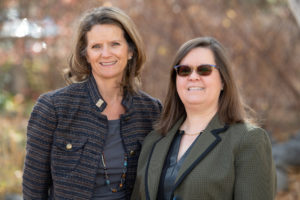Earlier this fall, we had the privilege of implementing a living wage for the lowest-paid employees at Colorado State University. An initiative that started in 2016, the new living wage – an annual income of $30,000 as a baseline for salaried employees – has become a source of pride for many at CSU, and the 385 employees who have benefited from the increase.

As the popularity of Fort Collins as a place to live has grown, so has our cost of living; the increasing expense of housing, utilities and other staples puts these bare necessities nearly out of reach for some of our employees. Our city’s cost of living is 25 to 30 points higher than the national average, depending upon the index.
Seeing this, the living wage proposal initially arose through the campus-wide Re-Envision CSU process that was coordinated by the Classified Personnel Council, Administrative Professional Council and Faculty Council in preparation for CSU’s 150th birthday in 2020. When the councils invited members of the campus community to share their hopes and dreams for CSU, many cited a living wage for employees as a critical concern.
Those discussions coincided with discussions that President Frank, Human Resources, and others were having about a pending increase in the federal minimum wage. We dug into the analysis of what it would take to bring all full-time and part-time employee salaries up to what is considered a living wage in Fort Collins and Northern Colorado, based on the MIT Living Wage Calculator. We talked with our stakeholders in Housing & Dining, Facilities Management, and the College of Veterinary Medicine and Biomedical Sciences, where the majority of employees who would be impacted by an increase worked.
The salary increases raised the income of 358 state classified personnel, 22 administrative professionals, and 5 academic faculty. The University will invest $1.148 million annually in those employees to raise their salaries and added fringe benefit costs. We also looked at unintended consequences, such as salary compression. To address this concern, we added another $44,085 to pull up the salaries of others in near salary ranges.
Employees who benefited from the increase include administrative assistants, animal care and laboratory support staff, custodial staff, dining services staff, materials handlers, and research associates. The largest increase was $7,548 a year – a considerable impact to that individual employee’s quality of life.
The success of the initiative was a group effort. As noted, it included the employee councils as well as close work with our departments where the impacted employees work. Many of these departments are self-funded, and had to find room in their budget and unit income to back the effort financially. Our committee also included representation from the Board of Governors, the Employee Assistance Program, University Benefits Committee, and our budget office. Some of our staff met with each of the 385 employees who would get a raise, and helped them navigate the cliff effect – an unintended consequence when income goes up beyond qualification for supportive services such as food, housing and utility assistance.
It took more than two years, a deep assessment, and many conversations. As Megan Skeehan, chair of the Classified Personnel Council, said, many committed people showed up and played the long game – and good things happened.
Repeatedly, the people involved have stated how glad they were to be part of a process with such a positive impact. We believe this initiative represents who we are as a university. It demonstrates our larger commitment to the value of the university as more than a place. CSU is what we make it to be; it’s a culture that we create. We can – and should — strive to make this university as great as it can be, while knowing that the pieces are as valuable as the whole: Each member of our community matters.
Lynn Johnson is Vice President for University Operations, and Diana Prieto is Associate Vice President for Human Capital for Colorado State University.